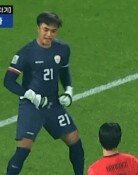Prior learning
Prior learning refers to a private institute`s program that teaches students ahead of public school curricula. It is different from a preview, which implies self-motivated learning. It is not unusual to teach subjects a semester in advance, and often others are taught a year ahead of schedule and even three years in certain cases. Even certain middle school students have to go to learn middle school courses at a private academy for elementary school students. The principals of certain elite high schools encourage prior learning publicly, with one saying, One can be accepted only if one masters high school courses.
Math is a typical example. In July last year, the Korea Foundation for the Advancement of Science and Creativity surveyed 4,715 students from the fourth to the 12th grade and parents. The percentage of prior learning more than a semester in advance was found to be 64.2 percent among elementary school students, 56.3 percent among those in middle school, and 62.9 percent for high school students. Even 3.47 percent of those in elementary school and 2.09 percent of those in middle school said they learned subjects more than three years prior to their regular courses. It is not difficult to find little elementary school students struggling with congruence of figures, trigonometric functions and geometric progression, which even middle school students find difficult, in the affluent Gangnam area of Seoul, which is known for academic zeal.
Does prior learning really work? No, according to Choi Yeong-seok, CEO of a private academic institute, in a recent seminar. About 70 to 80 percent of students who have done prior learning do not learn in earnest, he said. The students who do not fully understand what they have learned will face challenges due to lack of learning than those who simply followed school curricula. Of course, this does not apply to all students. The top 5 percent of students benefit from prior learning. The majority, however, waste time, money and energy without laying the groundwork for their academic foundation.
Education authorities design curricula based on brain structure at each stage and academic capacity. Parents, however, send their children to private institutes out of the fear that their children might fall behind. Private educational institutes aggressively market themselves. If the audience in the first row of a movie theater stand up to see the film, those sitting behind them will also stand up. In the end, everyone will end up standing to see the movie, causing inconvenience. The civic group A World with No Worries of Private Education is campaigning to legislate a bill to ban prior learning. Critics say banning learning through laws is absurd. But would they oppose if the law was effective?
Editorial Writer Chung Sung-hee (shchung@donga.com)







